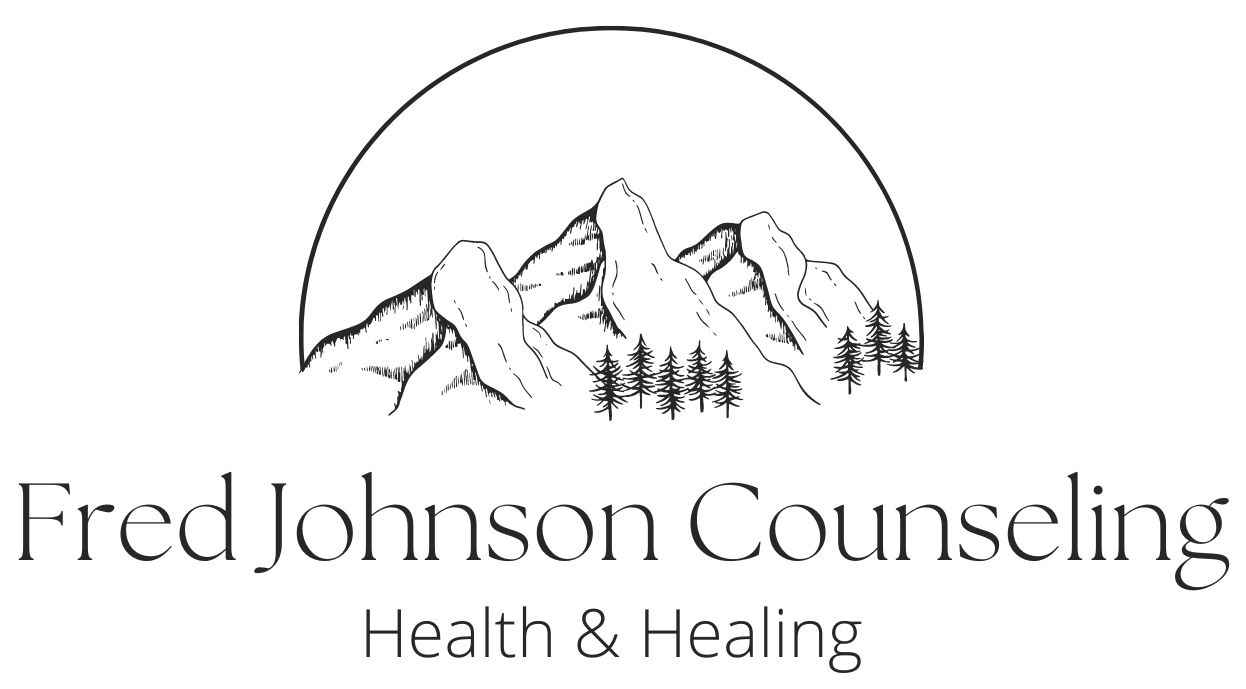The Dangers in Comfort
Fred Johnson • March 1, 2024
Since when is comfort dangerous?
Technically comfort is not dangerous in-and-of itself. There are certainly periods of rest and comfort we should seek out and recover in. The challenge is: life is not always comfortable. It wasn’t designed to be. Life can be, and often is, hard and challenging. Mental health wellness can be defined by one’s ability to adapt and adjust to the demands of reality (Cloud and Townsend, 2007). The answer is that comfort becomes dangerous when we resist reality’s demand for us to be uncomfortable. Here are some ideas for you on how to embrace discomfort and adjust to the demands of life.
Embracing discomfort
is not a natural thing for us. Naturally, our physical being seeks comfort and safety. Abraham Maslow suggested as early as 1943, a Hierarchy of Needs. At the very foundation is physiological needs (safety, food, shelter, water, clothing, and sleep). These keep us alive physically. We absolutely need them. However, every single one of them is hard and uncomfortable to procure of our own abilities. I’m personally thankful for every modern convenance that allows us to meet these basic needs in ease!
Everything above this foundational “physiological needs” level involves the social and mental comforts. The confusion is that while we “need” these things like safety and security or love and belonging, often the path to obtaining them is difficult. Learning to embrace discomfort can be a huge step towards meeting our needs in very heathy ways.
- Want to make more friends and have a close-knit support group? Embrace the discomfort of attending a small group for the first time and being vulnerable.
- Want to have a tidy home and organized schedule? Embrace the pain of doing housework and writing out a calendar.
- Desire to have a truly peaceful rest in evenings where you can relax and enjoy life? Grind through the difficulties of the day so that the evening time is peaceful.
- Want to get help with your mental health? Click that “contact me now” button on the counselor’s website you’ve been eyeing for weeks.
Each of us must embrace the discomfort required to achieve the goal or needs we seek. As soon as we wish for life to be comforting, we no longer are comfortable. When we learn to embrace the uncomfortable, we are comforted as a result.
Life demands of us. Adjusting is key.
If you’ve ever had one of “those weeks” you can relate to what I’m about to say: Some weeks are just harder on us than others. Some weeks, you are crushing life and accomplishing everything. Then other weeks, life is crushing and nothing you do seems to go right. If you’ve been through this (or are in one of "those weeks" right now), then let me encourage you. It is in your best interest to acknowledge this and make adjustments. That adjustment will mean different things depending on your personality. For some, a busy week will mean dialing back off of certain extras. For others, a busy week will mean leaning in and working harder to get everything done.
One way you can know how to adjust to life is to ask, “At the end of the day, what decision will I be proud of myself for making?”
Remember, being uncomfortable is not a problem, but resisting reality usually is.
Cloud, H., & Townsend, J. S. (2007). Boundaries. Zondervan.com

Most of us don’t want to admit it, but the arrival of October signals the official start to the holiday season. Within the next 91 days, there will be everything from spooky lanterns, stuffed turkeys, and sales catalogues arriving in the mail or inbox on the regular. Parties to attend, events to support, and special “once a year” gatherings will all demand our focus and presence. One thing is for certain, If you’re of adult age with even a mild case of responsibility, you will begin to experience what I call, “Holiday Time-Slippage.” Holiday Time-Slippage is the phenomenon wherein the busier and faster our lives become during the holidays, the less time we have to enjoy the holidays. In trying to do it all, we miss all that we do. Ok, I’ll admit I made that up. I even googled it to see if it was a thing. It’s not. Perhaps I just made it a thing, but more likely it is just a fun play on words that ends with this blog post. In either case, I think it’s important to be mindful of the changing of the seasons and what those signals for many. The 16th century produced a carol of Welsh origin we now know as “Deck the Halls.” Within the lyrics, the phrase “‘Tis the season” has become a popular connotation of the holidays in general. Sometimes we use it as a greeting, coping phrase, or in an excusing manner, because after all, “’Tis the season, right?” What we miss in doing so, is the instructive reply the original lyric provides: “… to be jolly.” To experience a cheerful and happy time. In talking with people daily about their lives, I am reminded that not everyone enters this season with the hope of joy and jolly nature. Life can be hard. Holidays can bring triggers, those sharp painful reminders. The holiday seasons can be an extremely isolating time for many. We need the care of each other in these times. We need connection. We need people in our life who will laugh and love, who will share a moment. Maybe you are the person able to provide that for another. Maybe you’re the person who needs that. If I can remind and encourage you today, that in all your seasons upcoming, allow time to simply be jolly.

Each year, on the first day of August, I remind myself that we are closer to the end of the month than ever before. Each day after, as sweltering humid heat swarms us here in the south, I am reminded that it is now one day closer to the sweet relief of fall temperatures. I’m not sure how I would fair, if by chance, I believed the rampant heat waves of August would never leave. Thankfully, I know seasons come and seasons go. The dreaded drudgery of a hellacious August will soon be gone. The expounding beauty of fall, with leaves changing and cool breezes blowing, will soon arrive. Admittedly, this confession of seasonal distaste is a bit melodramatic. Yet, it serves as a practical example of what is known as “tolerable” stress and an adaptive coping response. Types of stress vary, but the three main categories are “good/positive”, “tolerable”, and “toxic” (1). These categories are not concrete or strictly defined by rules and circumstance necessarily. What is “good” stress for one person, may be “toxic” for another. Throughout our lives, the same stressors can change categories multiple times. Stress levels depend on the degree to which a person perceives control over a stressor or situation and whether they have support systems or resources in place to handle the stressor over their lifespan (2). A flat tire one day may be nothing other than a slight inconvenience. Yet on another day, it may represent all the uncontrollable forces keeping you from arriving on time to an important job interview. An easier way of saying all of this is, when we lose our sense of being (ability to control or make decisions) to a circumstance, we are a susceptible to toxic stress. This is where endurance comes in. I would love to say there is short and simple method to reduce and mitigate all toxic stress in our lives. Unfortunately, this just isn’t so. It doesn’t need to be. Because life, people, the world we live in, are all super complicated. What is important and hopeful: the effects of chronic/toxic stress in the brain and body are responsive to recovery and healing. Let’s talk about endurance as a helper for stress. Endurance, or the ability to withstand hardship or adversity, can be a simple, but effective tool to transition from toxic stress to tolerable stress. Enduring is a mindset of “thriving despite”. Thriving despite the terrible. Living beyond the hurt or difficulty. Healing to be able to accept good again. The difference in the stress types is significant. Remember that our perception plays a major role in which is which. Positive/good stress: normal life challenges such as receiving a promotion, learning a new skill, exercise, or having a child. Here we are allowed goals, enjoy success, and try new things. Choice remains in these. Tolerable stress is usually non-normative. Examples are loss of a loved one, serious illness, or natural disasters. There is a sense of unfairness in this. Often the choice to feel good is removed or feels wrong to do so. Our choice is questioned here. Toxic stress is typical adverse and inappropriate. Over time it can carry heavy physical and psychological consequences. All of life is darkened by this. Seeing good is tinted by what we have been through or currently in. We usually feel there is no choice in these. Abuse, intimate partner violence, Determining in our mind, to endure, withstand, and survive a critically difficult situation can move us from toxic stress to the tolerable type, then eventually the good type of stress. Living to allow good again. If ever there was a sentence that embodied the old phrase, “easier said than done” ---- that one was it. Tragically, it seems toxic stress only makes us good at surviving trauma or the terrible. It limits our ability to enjoy or even to see the beauty in a moment. The healing process allows us to be more human than before toxic stress skewed our view of the world. Talking with a counselor can be a critical part of healing. I hope that perhaps today in reading this, you’ve found a tool to help enduring despite what you’re up against. Notes: 1. https://center.uoregon.edu/StartingStrong/uploads/STARTINGSTRONG2016/HANDOUTS/KEY_49962/TypesofStress.pdf 2. https://www.ncbi.nlm.nih.gov/pmc/articles/PMC2864527/

